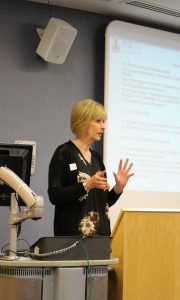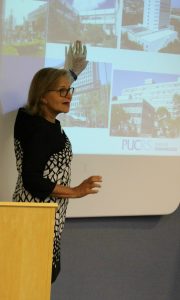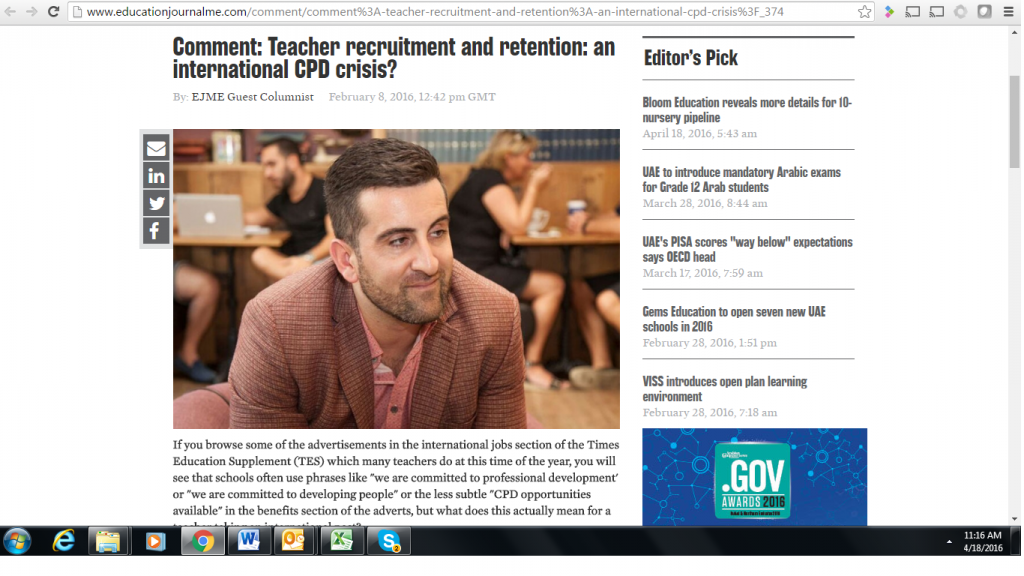The UK is a divided society and many current educational systems maintain inequality and rivalry. Intergroup tensions underpin international conflict. Instead of prioritising competition and achievement, should cooperation and understanding be at the heart of education?
Education as currently conceptualised and operationalised in the UK clearly doesn’t engage, include or provide meaningful educational opportunities for all young people.
We are a society that resolutely groups and classifies people. In relation to the current impact and outcomes of education, grouping and classification can be self-perpetuating and socially harmful.
Wilkinson and Pickett’s (2010) study showed that the size of the ‘gap’ between the wealth of the richest and poorest in society is strongly related to educational outcomes and social well-being, and low family income has been found to be causally related to children’s well-being and educational development (Cooper & Stewart, 2013).
The recent survey by CPAG (2015) estimated that 3.7 million children were living in poverty. It also happens that children eligible for free school meals are 4 times more likely to be excluded from school than those who pay for their meals. Excluding children already at risk because of poverty is adding insult to injury.
educational systems also mimic and perpetuate socio-economic stratifications
Whilst socio-economic disadvantage can be self-perpetuating, educational systems also mimic and perpetuate socio-economic stratifications. Thus, the ‘ability’ grouping of children in school is clearly of little advantage to any but disadvantages many, as well as creating groups that are hard to motivate and teach. Just labelling groups, can adversely affect teachers’ expectations (Gibbs & Elliott, 2015; Rosenthal & Jacobson, 1968).
However, it is also important to consider the effects being put in a group. Tajfel (see Tajfel, 1982) showed how being arbitrarily placed in a group generated behaviours favouring in-group members. More recent studies have shown how beliefs about social groups, become essentialised and prejudicial. In schools this is becoming a major issue with respect to children’s behaviour. Guidance for schools (DfE & DoH, 2015) now locates problematic behaviour within the province of ‘mental health’. Thus teachers may more readily judge challenging behaviour as a sign of mental ill-health (and thereby not the responsibility of school staff) and young people become fearful of being labelled ‘mental’.
Whilst the studies of intergroup processes did not, for Tajfel, leave much scope for optimism, the future does not need to be bleak. Cooperative working can reduce conflict. In dialogic teaching, for example, the collaborative and critical interactions generated between teacher and students, and between students, can have profound positive social and educational effects (Mercer & Howe, 2012). Thus, if members of differing groups are encouraged and enabled to interact with each other greater mutual understanding and respect can follow. More than ever we need greater understanding and acceptance of difference within our society, between nations and toward those who migrate in fear of their lives.
Education fails if it does not engage and motivate learners and provide them with understanding and skills that enable them to contribute as creative social beings now and in the future. At the moment education systems are not fit for that purpose.
We should ask if we want educational systems to perpetuate social and economic inequalities. It is possible for schools to engender understanding and tolerance, include all children and enable them to learn together. Today education segregates and divides. It is clear we don’t need more inter-group antipathy. We could choose to have different purposes and outcomes.
References
Cooper, K., & Stewart, K. (2013). Does Money Affect Children’s Outcomes?: A Systematic Review: Joseph Rowntree Foundation.
CPAG. (2015). Child poverty facts and figure. Retrieved 13/01/2016, fromhttp://www.cpag.org.uk/child-poverty-facts-and-figures
DfE, & DoH. (2015). Special educational needs and disability code of practice: 0 to 25 years. London: Department for Education.
Gibbs, S., & Elliott, J. (2015). The differential effects of labelling: how do “dyslexia’ and “reading difficulties’ affect teachers’ beliefs. European Journal of Special Needs Education, 30(3), 323-337. doi: 10.1080/08856257.2015.1022999
Mercer, N., & Howe, C. (2012). Explaining the dialogic processes of teaching and learning: The value and potential of sociocultural theory. Learning, Culture and Social Interaction, 1(1), 12-21. doi:http://dx.doi.org/10.1016/j.lcsi.2012.03.001
Rosenthal, R., & Jacobson, L. (1968). Pygmalion in the classroom. The Urban Review, 3(1), 16-20. doi: 10.1007/BF02322211
Tajfel, H. (1982). Social identity and intergroup relations. Cambridge: Cambridge University Press.
Wilkinson, R., & Pickett, K. (2010). The spirit level: why equality is better for everyone: Penguin UK.
Taken from BERA
Simon Gibbs is currently Reader in Educational Psychology in the School of Education, Communication and Language Sciences, Newcastle University. He has worked in education for more than 40 years starting as a maths teacher. He then retrained and worked as an Educational Psychologist in the NE of England. Since 2007 he has been Director of Training in Educational Psychology at Newcastle University. His research is preoccupied with the psychology of education and teachers’ beliefs in their efficacy. Prompted by increasing concerns about the ‘medicalisation of childhood’ and the faltering progress of inclusive education, he has most recently been conducting investigations into the effects of labels (such as ‘Dyslexia’ and ‘ADHD’) on teachers’ expectations. He is married and lives in North Yorkshire.





